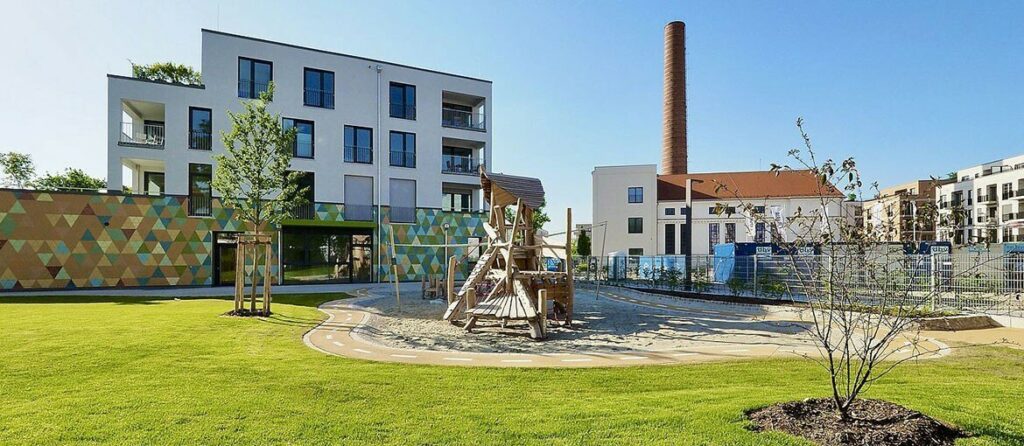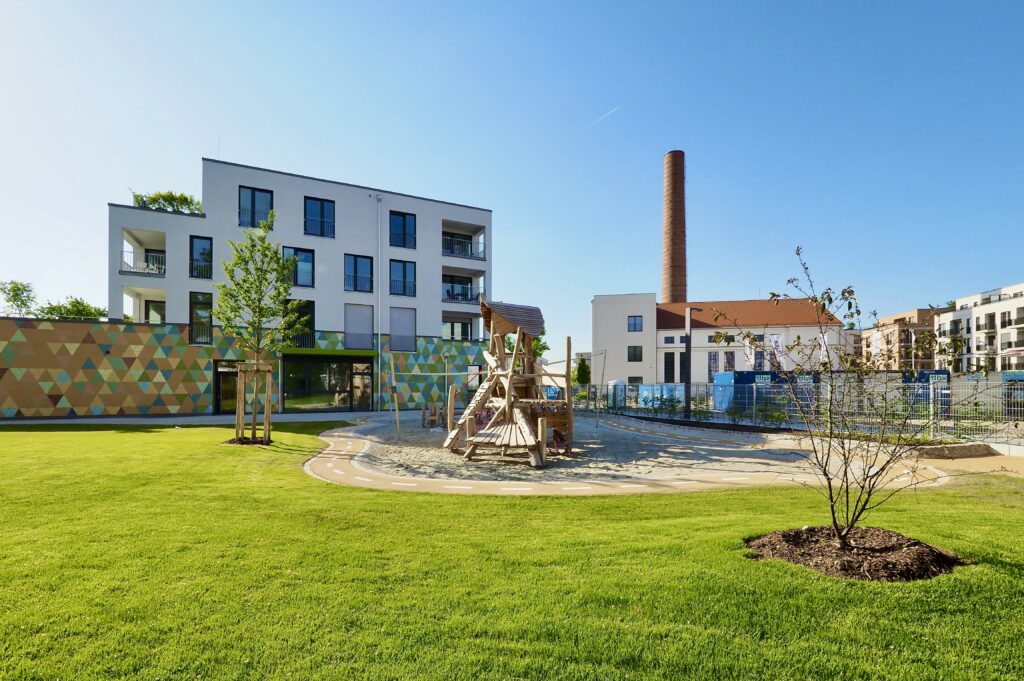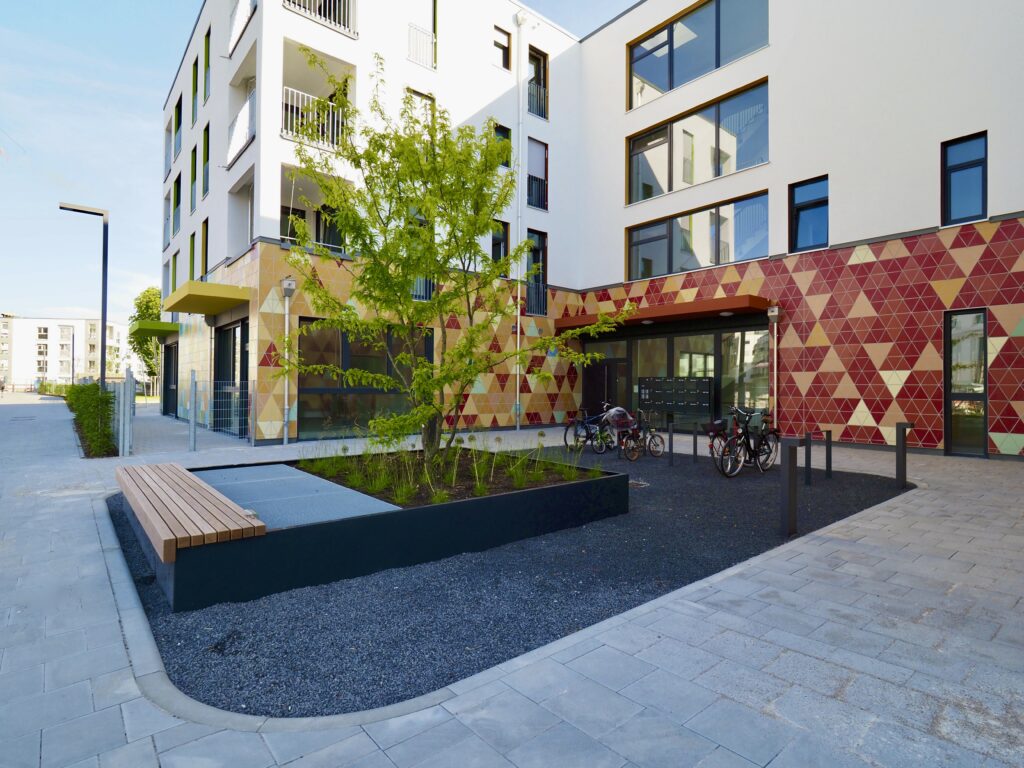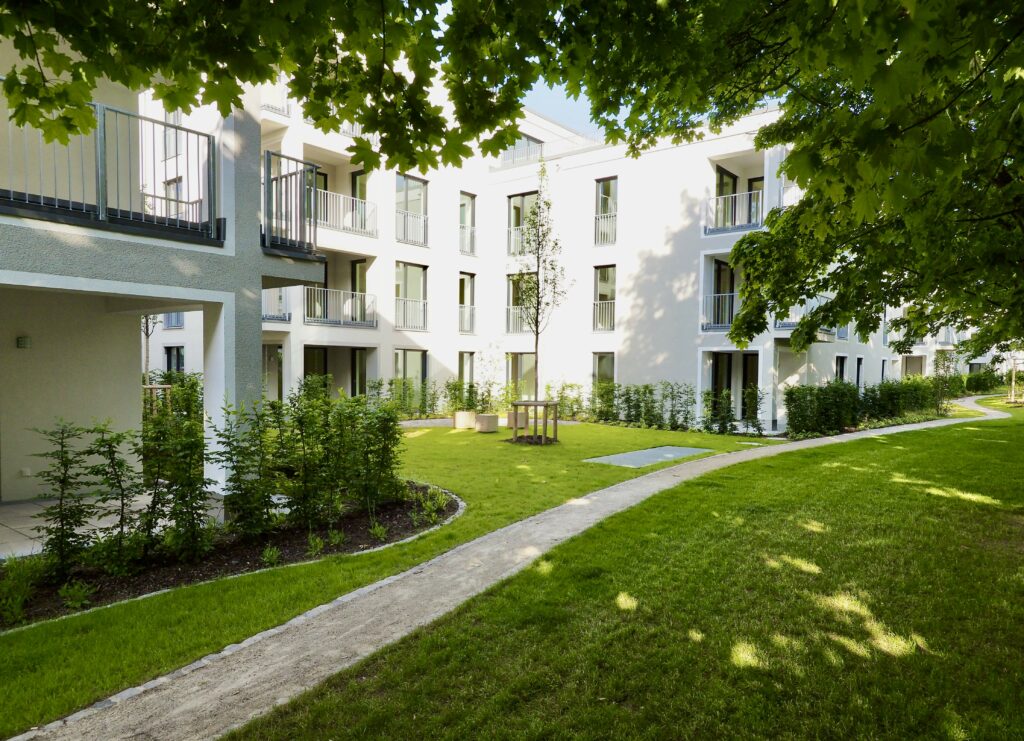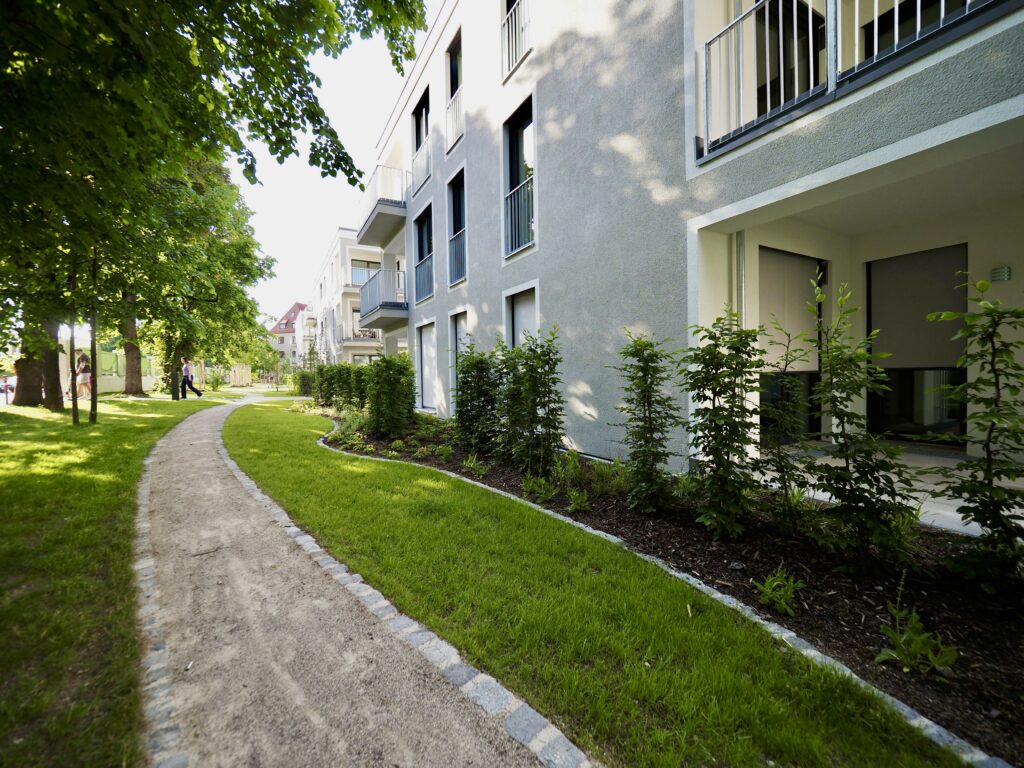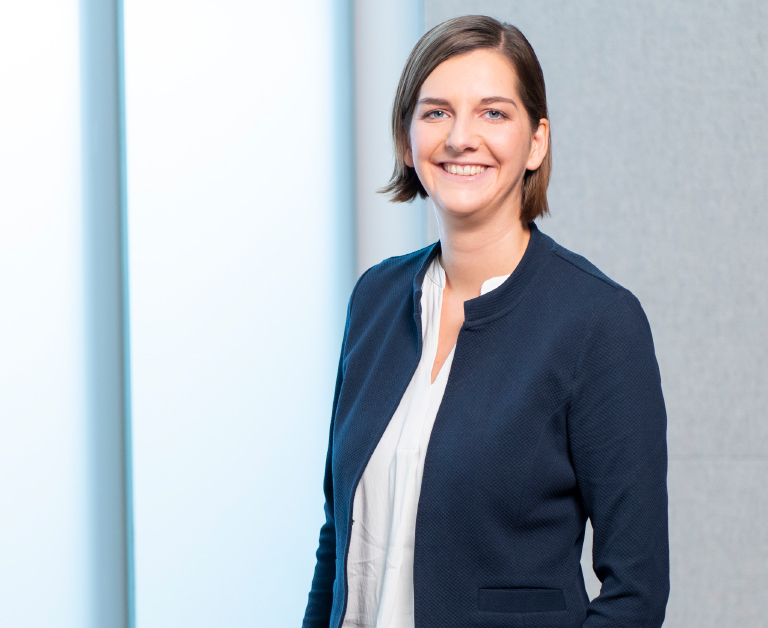- New quarter in Munich Allach on around 79,000 m²
- Approximately 45,000 m² of green and open space, including approximately 10,000 m² of park and approximately 10,000 m² of wildlife habitat
- Extremely diverse use and offer: wood construction, geothermal energy, combined heat and power plant, smart home, e-fueling
- 721 apartments as well as commercial and social use
- Brownfield development with historically preserved elements
Munich, June 23, 2021. The new Diamaltpark city neighborhood was built within three years on the site of Munich’s Diamalt baking products and soup seasoning factory (1902-1994). The construction of this sustainable and mixed neighborhood took extensive planning. The Munich Design Advisory Board conducted its final site inspection yesterday.
“The implementation of the urban design with its architectural diversity has been extremely successful,” says architect and urban planner Prof. Franz Pesch, winner of the urban design competition and chairman of the design advisory board. “The neighborhood blends well into the urban landscape with its distinctive signature of historical reference and contemporary, diverse architecture,” Pesch said.
Tangible Sustainability
Munich-based project developer Isaria is realizing the majority of the project development. David Christmann, Managing Director of Isaria Projektentwicklung says: “Right from the start, we aimed to create a neighborhood with a high quality of living, where residents can also experience sustainability very much on an everyday basis.” Christmann emphasizes that this mix of quite different measures has very tangible effects on sustainability. For example, each building in Diamaltpark has its own well and uses geothermal energy, and a combined heat and power plant provides locally produced energy. The green and open spaces, which cover around 45,000 m², counteract land sealing and also make a significant contribution to preventing the city from heating up. Roofs and terraces have also been intensively greened, and every parking space in the underground garage is pre-equipped for electric mobility. Wood construction and smart home systems are also integrated.
Fusion of Quality of Living with Sustainability
“As far as we are concerned, a good mix of high living goes hand in hand with sustainability in a sustainable neighborhood,” explains Pesch. The green center, approximately 10,000 m² in size, plays a key role in this. The central park will be dedicated public space with a design and offer to appeal to all age groups. There will be a playground for the children, modern sports facilities such as calisthenics to appeal to adults, and comfortable seating aimed not just at the older generation. Several homes also feature communal rooftop gardens.
Three listed buildings in the center of the area recreate the charm of art nouveau from the turn of the century. One of these is the Kesselhaus, which has since won an award for its renovation. An area of around 10,000 m² will remain inaccessible. This unsealed area to the east of the neighborhood serves as a protected habitat for sand lizards and special flora and fauna along the railway line.
Affordable Housing
There are offices, three daycare centers and places for social use in Diamaltpark. However, the 721 apartments form the main focus. These feature a mix to suit different levels of affordability: apartments subsidized according to income, reduced-rent apartments consistent with Munich’s model for tenants, privately financed rental apartments, as well as condominiums. “We have established Diamaltpark to create affordable and sustainably designed living space in an attractive location, often with a terrace, balcony, loggia or roof terrace,” says Christmann. “A neighborhood for those who live in the city, yet still need to feel connected to open space.”
The residential development is already 50 percent complete. The first residents moved in during April 2021. The parks and apartments will be completed by the end of next year.
More about the history of the site.
More about Isaria Projektentwicklung.
About Isaria München Projektentwicklungs GmbH
Isaria specializes in the development of city districts and sustainable buildings in urban areas. From the time of acquisition through to the construction phase, all projects undergo sustainability analyses as a matter of routine. The goal when doing this is always to develop livable urban districts while conserving resources, for example on the MD paper factory site in Dachau, where up to 1,000 apartments are to be built in the coming years. Isaria is part of Quarterback Immobilien AG.

